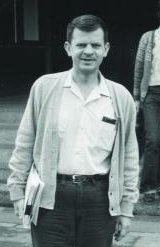A Quote by Clive Granger
Forecasts vary in horizon, from a few seconds up to a few days in financial markets, compared to from one to several months for macro variables. We have to provide uncertainty intervals around the central forecasts to indicate the extent to which we are unclear about the future.
Related Quotes
When I was in graduate school in Princeton, I was told to take three courses. One of them to work on really hard, another to work on moderately hard, and the third one just to absorb. In my case, I never showed up to the latter class, taught by Robert Gunning, on Several Complex Variables. Several Complex Variables (Cn) was starting to get vary fashionable then, but I decided to specialize in n=1/2.
When I was 23, I went backpacking around Australia for three months. I saved up a few grand, quit my job and flew to Sydney, then went to Melbourne and up the East Coast, which was an incredible experience. I remember running out of money and getting my mum to send me a few hundred quid, which helped me get by.
The generally accepted theory is that financial markets tend towards equilibrium, and...discount the future correctly. I operate using a different theory, according to which financial markets cannot possibly discount the future correctly because the do not merely discount the future; they help to shape it.
Your ego may be just a soap bubble. Maybe for a few seconds it will remain, rising higher in the air. Perhaps for a few seconds it may have a rainbow, but it is only for a few seconds. In this infinite and eternal existence your egos go on bursting every moment. It is better not to have any attachment with soap bubbles.



































